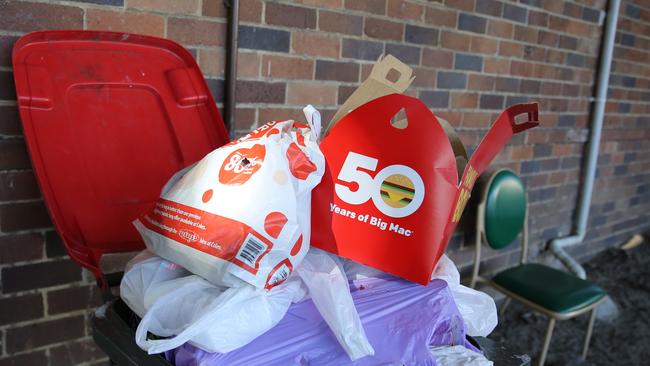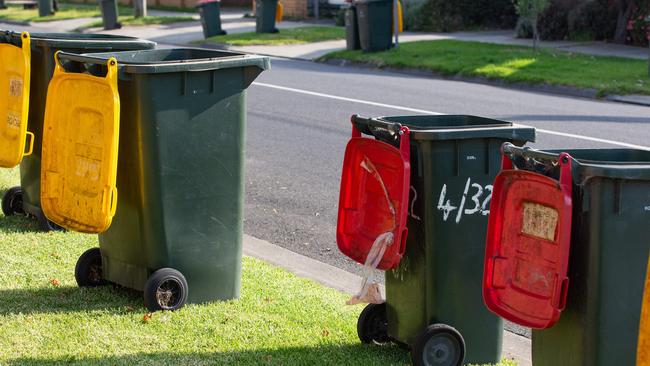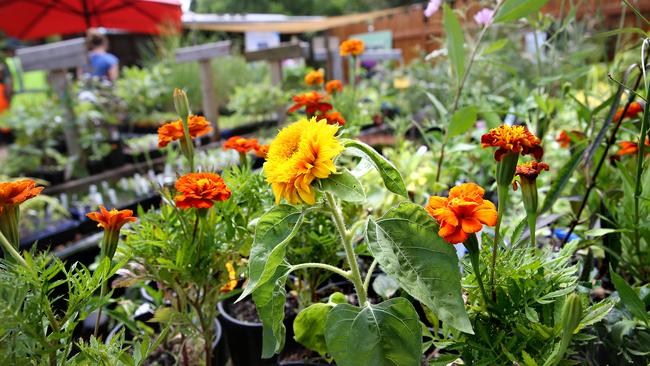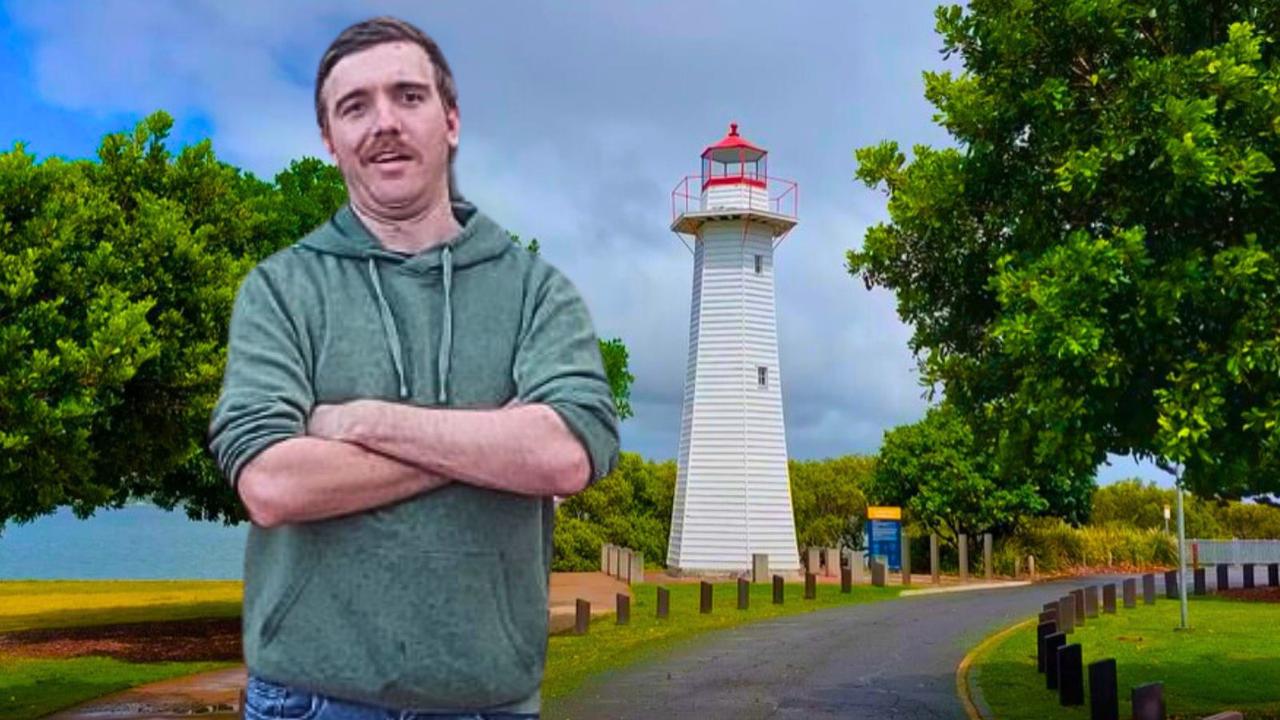Brisbane residents fill up rubbish bins with recycling and food waste
Brisbane City Council says residents are doing rubbish wrong. Here’s where we’re going wrong.

South West
Don't miss out on the headlines from South West. Followed categories will be added to My News.
A MAJORITY of rubbish in Brisbane’s red-top wheelie bins could be recycled and turned into something better but instead it is going to waste and taking up space.
Brisbane City Council Field Services chairwoman Vicki Howard said two-thirds of waste in the average resident’s red-top wheelie bin could be composted or recycled.
THE BEST REUSABLE SHOPPING BAGS
About one-third is traditional recyclables like paper, cereal boxes and glass and the rest is kitchen scraps and food waste, which could be turned into compost.
Instead it is all going to landfill.

Cr Howard said although the amount of recycling in waste bins had decreased from 25 per cent to 17 per cent in five years, there was room to improve.
“The top three recyclables in household bins are paper or magazines, food packaging boxes such as cereal boxes, and glass bottles,” she said.
“We don’t want any recycling going into landfill, so we’ll continue working with Brisbane residents to provide more information and make it even easier to recycle.”

Brisbane Lord Mayor Graham Quirk said food waste was the “largest contributor” to avoidable rubbish in the city’s landfill, and created greenhouse gases at the tip.
“Council is committed to reducing the amount of recyclables going to landfill, which contributes to greenhouse gases, and has introduced a series of community composting hubs across the city to provide an easy way for residents to live more sustainably,” he said.
He said residents who could not recycle at home could join a community composting hub to donate their kitchen scraps to a local community garden.
Volunteers sign up online or at their local ward office for a free compost caddie and pick it up from a community composting hub and start collecting food scraps to donate.
What can you compost?
Banana peels (extra perk: puts potassium in the garden)
Kitchen scraps and vegetable peelings
Citrus peelings and scraps (Do not put worm farm composting systems)
Onion peelings and scraps (can smell bad so bury in the pile and add paper, do not put in worm compost systems)
Fruit scraps (bury in the compost and cover with paper to deter fruit flies)
Potato scraps (squash, mash, or finely dice to stop from reproducing)
Non-glossy paper, including newspapers, and cardboard (can help with bad smells, shred them up and damp them first)
Sawdust or dried plants (but keep away from sawdust from treated wood)
Egg shells (extra perk: calcium for the garden)
Used coffee grounds and tea leaves (including tea bags)
Natural fabrics, like cotton and linen
Garden waste and grass clippings
What can’t you compost? (And what to be aware of)
Bread and rice
Human, dog and cat manure (it can make you sick)
Meat and dairy products
Inorganic materials like plastic or glass or tin (it sounds obvious but ...)
Cooking oils and fats
Weeds (best avoided but some methods can compost weeds - do your research!)
Diseased plants
Tomatoes and capsicum seeds (sprout easily when the compost reaches the garden)


